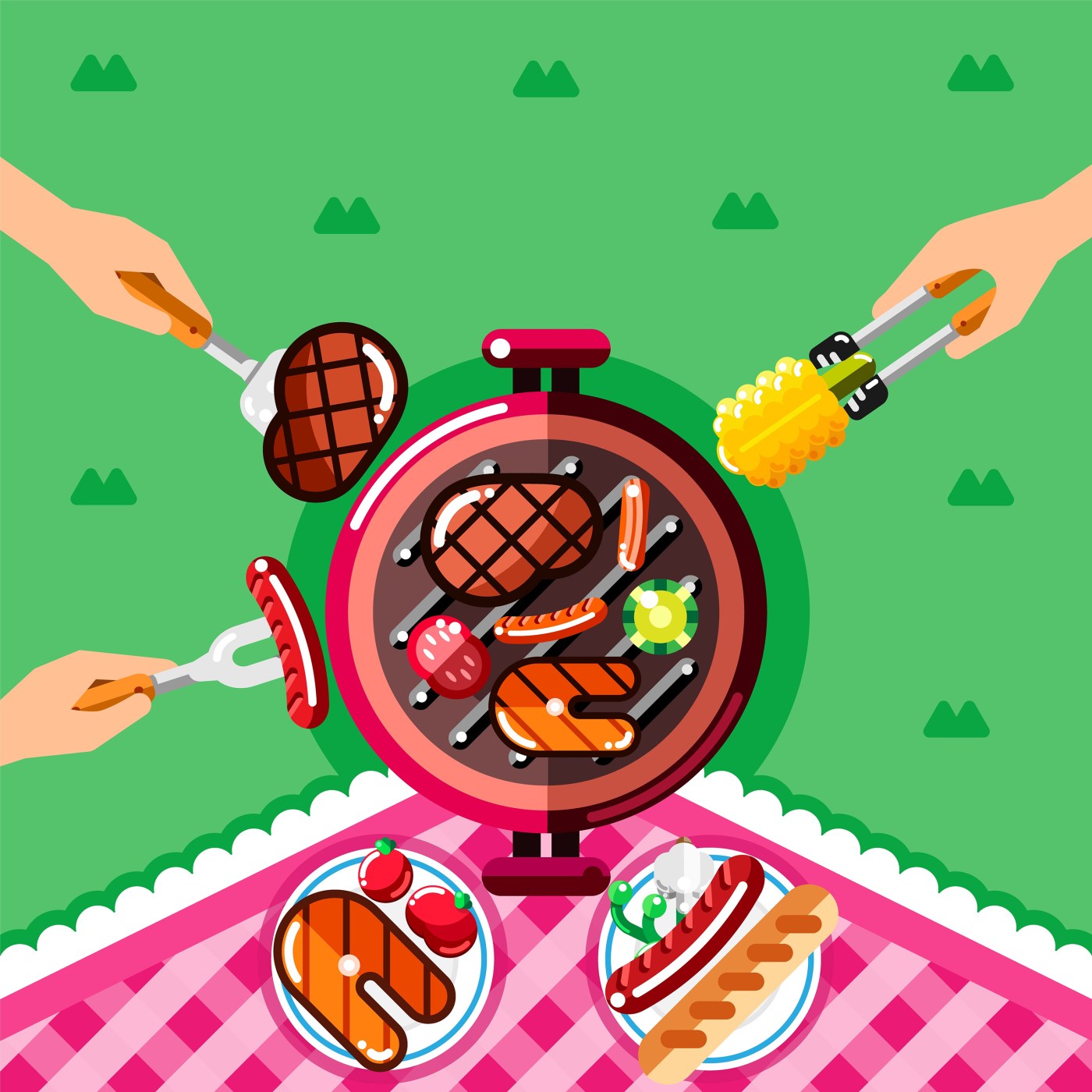
How to keep your family’s outdoor feast safe this summer
When planning a family cookout or packing a picnic to enjoy at the park, pool or beach, keep food safety in mind.
Children under age 5 are at higher risk of getting seriously sick from contaminated food. Food poisoning tends to be more common in the summer. It’s when more people cook and enjoy meals outdoors, away from refrigerators, sinks and thermometers.
Food poisoning happens when germs get into foods we eat. This can occur anywhere along the way from harvesting and processing food to our own kitchens if food is not handled or cooked properly.
Contamination of food during harvesting and processing can result in large outbreaks as we recently have seen with cucumbers carrying Salmonella. During warmer weather months, germs can multiply quickly on food.
Foods that commonly cause food poisoning include raw or undercooked meat, fish, shellfish, eggs and dough; processed meats like hot dogs and deli meats; unpasteurized milk, soft cheeses and juices; raw fruits, vegetables, seed sprouts and nuts; honey; and powdered infant formula
To avoid food poisoning and contamination, food safety experts urge people to wash hands before cooking and clean all surfaces where food will be prepared and served (at home and when you are away). Also:
When packing food, start with clean hands and clean coolers.
Before reusing plates and utensils that held or touched raw food, wash them in hot, soapy water.
Clean the grill with a ball of aluminum foil or nylon brush. Try to avoid wire grill brushes, which pose injury risk when stray wire brush strands stick to food and are swallowed.
Use separate coolers based on the temperature and type of food or drink. For example:
Store uncooked food away from prepared food that is ready to eat. This includes keeping foods that are eaten raw (like vegetables and fruits) separate from raw meat, poultry and seafood that must be cooked first.
Before you leave home, rinse fruits and vegetables and dry them well.
Pack dishes and utensils for cooking and a separate set of clean dishes and utensils for serving food.
Drinks should also be sorted into separate coolers. Keep alcohol in an “adult” cooler so children do not accidentally grab the wrong drink.
When you get to your picnic site, if possible, place the food coolers in a shaded area and keep them closed. This will help avoid exposing food to changes in temperature. Until it is served, cold food should be kept under 40 degrees Fahrenheit and hot food should be kept at or above 140 degrees.
Put leftovers back into coolers to keep bacteria from multiplying. Know when to throw away food that is left out at room temperature. Hot and cold food should not sit out for longer than two hours or one hour if outdoor temperatures are above 90 degrees.
Young children, pregnant people, people with immune conditions and the elderly have a higher risk of food poisoning. Include safer options on the menu for those at high risk if they get sick, such as:
Using pasteurized eggs in foods like Caesar salad dressing or mousse.
Looking for dough and batter products that are labeled as “edible” or “safe to eat raw.”
Serving alfalfa or bean sprouts that are cooked until steaming hot instead of raw.
Eating uncooked or undercooked food can make people sick. To kill germs on meat and seafood, grill to the recommended temperature:
145 degrees for solid cuts (for example, roast or steak) of beef, veal, lamb and pork, with 3 minutes rest time after cooking
145 degrees for fish with fins
160 degrees for raw ham and ground meats, including beef, pork, veal and lamb
165 degrees for poultry, including ground chicken and turkey
Even with careful planning, food can get contaminated. Symptoms of food poisoning are a lot like other intestinal illnesses. They can start within a few hours after you eat or can take a few days to make you sick.
You may have stomach cramps, feel nauseous, throw up, have diarrhea and may have a fever. If several people who have eaten the same food all have the same symptoms, food poisoning is likely the cause.
Remember that food contamination and food poisoning can often be prevented. Talk with your pediatrician if you have any concerns about food poisoning, what to do if you notice symptoms, and ways to prevent foodborne illness.
Robert W. Frenck, Jr, MD, FAAP, is board-certified in general pediatrics and pediatric infectious diseases. He practices at Cincinnati Children’s Hospital Medical Center and is a Professor in the Department of Pediatrics at the University of Cincinnati School of Medicine in Cincinnati, Ohio. Within the American Academy of Pediatrics, Dr. Frenck is a member of both the Section on Uniformed Services and the Section on Infectious Diseases./Tribune News Service


